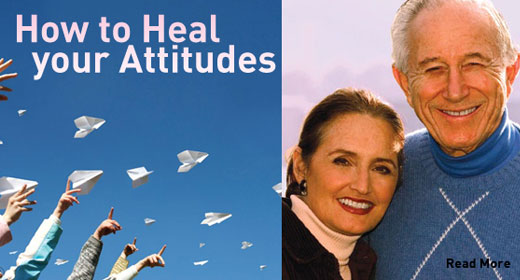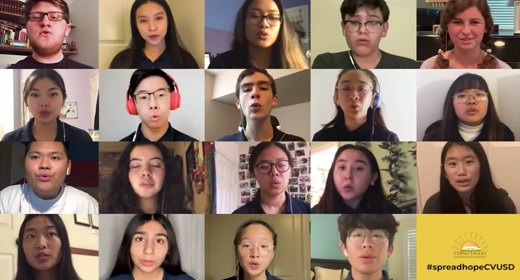Dr. Gerald Jampolsky, known far and wide as “Jerry”, is commonly considered a founding father of the self-help movement

and working with children and adults facing life-threatening illness, crisis, challenges, and change. Thirty years ago his seminal book Love is Letting Go of Fear introduced millions to the concept that our thoughts don’t merely affect but actually create our reality, an idea that he was first exposed to by A Course in Miracles. In the years since he has written over a dozen bestsellers, including Change Your Mind, Change Your Life, Finding Our Way Home, and A Mini-Course for Life and more with his wife, psychologist Dr. Diane Cirincione. They have also been invited to work in 55 countries and mentored Centers for Attitudinal Healing on five continents. So when Jampolsky, now eighty-five, decided to title his latest book The “Oh Shit” Factor: Waste Management for the Mind, some of his friends expressed concern. “You’ll damage your credibility,” they told him.
They needn’t have worried. Although the book was intended to appeal to a younger audience who “might not ordinarily visit the self-help section in a bookstore”, Jampolsky quickly found that people of all ages responded to its humorous and accessible message, including Cirincione’s ninety year-old mother who finally admitted shyly, “I say ‘Oh Shit’ too.” This latest publication marks another chapter in lives sincerely devoted to evolution – both their own and others’. SuperConsciousness talked with this exceptional couple about what they have learned from thirty years of working with people around the globe to share and demonstrate what they call “Attitudinal Healing.”
SC: You’ve said that our thoughts create our reality. If we accept that, and then what we might consider “bad things” happen in our life, how do we avoid turning that into an excuse to blame ourselves?
DC: I need to back up to the place where I decide what is a good experience and what’s a bad experience. What’s a good reality; what’s a bad reality? The judgment on that is where we get stuck, and start that, “wait a minute; if I create my own reality, I didn’t ask for this.” Oh, really? Well, actually, maybe you did. Maybe you’ve created just exactly what you want to learn from. We are a co-creator in the universe; not that everything that runs through my head is going to become a reality in front of me, or that I would specifically create really negative things for myself; that’s not true. This universe is constantly in creation and constantly in cocreation, and we’re a part of that. We create from a larger perspective than the smallness of our unconscious or conscious minds. And from that place we can say that everything that I experience is something that I can learn from. Everything has a gift, depending on the attitude that I have about what I’m experiencing.
We can choose to be angry the rest of our lives. We can choose to be bitter the rest of our lives. Or we can choose a gradual process of letting go of our control issues, letting go of the way we see the world, and seeing that the world may be one that we have invented.
Our attachment to what is good, what is bad, what’s happening, what’s not happening, letting go and not letting go, all of those things influence the reality that we’re experiencing. I think that’s how it’s distilled down often to a simplistic view of that slightly more complex issue.
SC: Many of us keep our deepest and darkest attitudes hidden, even from ourselves, because we are too ashamed or afraid to acknowledge them. How can we reveal these attitudes without judging them?
JJ: We have to start by realizing that perhaps it’s our belief system that’s getting us in trouble. We’re all a work in process. We all have our own dark corners, but what helps make us more transparent and feeling the experience of oneness is when we let go of the blocks. The main blocks that I think human beings have are our judgments against ourselves, our feelings of shame, our feelings of blame that we hold against our parents or ourselves or other people.
The whole process of forgiveness is not agreeing with what another person said, but it’s really saying if we have inner peace as our only goal, and that becomes our foundation and we’re vigilant about that when we’re feeling that justified anger towards someone else or ourselves, we can stop for a moment and say, hey, this is what’s causing me to stay in that prison of darkness. If I’m willing to see the benefits of letting go of the anger and letting go of my judgments, I’m going to start feeling a sense of peace.
If we want to heal the attitudes of the world about genocide, it doesn’t mean that we don’t go out there and do something, but unless we also take responsibility for our own murderous thoughts, our thoughts of separation with other people, the way that we judge others, the way that we separate in our minds, it’s never going to be effective.
DC: So it’s a very conscious effort.
JJ: Most people don’t realize when they’re feeling such victimization that we have a choice what thoughts and what attitudes we put in our mind. We can choose to be angry the rest of our lives. We can choose to be bitter the rest of our lives. Or we can choose a gradual process of letting go of our control issues, letting go of the way we see the world, and seeing that the world may be one that we have invented.
DC: We’re reticent to look at the shadow side of self because our survival personality is so built on erroneous thoughts about ourselves, whether we’re told we were born with original sin or whatever it is. It’s almost like an independent self inside that says “I need to keep these illusions alive or else I will evaporate.” The question is, who is the self that we’re talking about here? Where we are operating from our personalities, we do everything we can to hide the idea of who we are by keeping these illusions alive – that we are guilty, horrible bad people, that we need to be redeemed to really find the light in ourselves.
We don’t believe that. We believe that exposing these things will show them for the illusions they are. When you bring them out of the shadows into the light, that’s when deeper healing begins.
SC: Do you think that it’s more important to heal our own thinking than to attempt to heal the world when we haven’t yet cleaned up our own minds? Is there a balance?
JJ: If you really want to find peace of mind and you’re trying to change form, you’re always going to be in conflict, because that form goes with a change. It’s important to recognize that it’s our own mind that needs healing when we find ourselves involved in fear and anger and retaliation. So as we learn to heal our own mind around the regions of separation, the world that we see begins to shift.
“Wait a minute; if I create my own reality, I didn’t ask for this.” Oh, really? Well, actually, maybe you did. Maybe you’ve created just exactly what you want to learn from.
DC: We’ve done a lot of workshops and things over the years and I remember especially one that I had done in the ‘80s with a lot of people who were in the anti-nuclear movement and the peace movement. It was very interesting to see. All had accomplished things out in the world. They were major players in the peace movement, and yet a portion of them have completely burned out, and the others were really happy with their lives. The difference was that the ones that only had the goal to heal the world weren’t taking responsibility for their own thoughts. They took their own anger and rage and proliferated it out there. They did get certain things done, but they were completely burned out. The ones who were more joyful in their lives had taken responsibility for their own anger, their own un-peaceful thoughts and then asked, “What should I think, say, and do?” and went out there to do it in the world.
So the difference is not necessarily what we do in the world, but the consciousness that we do it with. And so our attitudes are like the same thing. In fact, if we want to heal the attitudes of the world about genocide, it doesn’t mean that we don’t go out there and do something, but unless we also take responsibility for our own murderous thoughts, our thoughts of separation with other people, the way that we judge others, the way that we separate in our minds, it’s never going to be effective.
Attitudinal Healing is not about healing somebody else’s bad attitude. We all know other people whose attitudes we’d like to change, but it’s really about healing our own attitudes, recognizing how we look, not just at the world, but how we see our self. It’s recognizing that it’s not other people or experiences outside of ourselves that cause us to be upset, but our thoughts and our attitudes and our judgments about those things. And we do have control over that. We can change and heal the thoughts in our own minds.
It’s our belief system that’s getting us in trouble. We’re all a work in process. We all have our own dark corners, but what helps make us more transparent and feeling the experience of oneness is when we let go of the blocks.
SC: I loved your description of your friend Hugh Prather’s idea about having a television on our heads that broadcast every thought. How would that change the way we interact?
JJ: If we truly believed that we do not have private thoughts and that, ultimately, everything is known, wouldn’t we take responsibility for what’s in our mind, and be very motivated to let go of it? Right now we’re not motivated to let go of it because in the case of anger, we have so many other people supporting it. If everyone took responsibility for the anger that they had and found that it was hurting them, eating them up alive, then they’d begin to do something about it. The world would be very different.







































